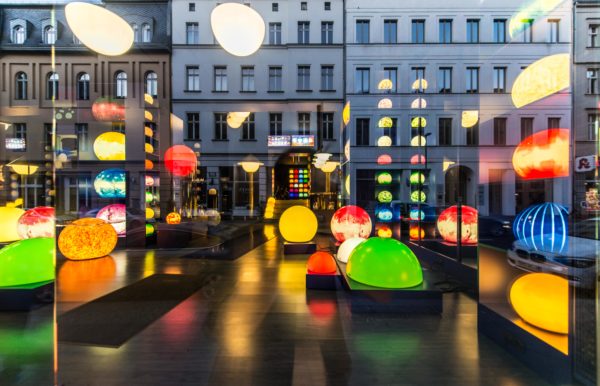
Brought to you by Singapore Exhibition Services
No longer a novelty like a few years ago, smart technologies are now crucial to helping a city attract talent, create jobs and improve the quality of life for citizens.
In Singapore, one of the world’s foremost smart cities today, the progress has not been deemed fast enough. It is considering a number of initiatives to move things along more quickly.
Among them is a digital ID for citizens to safely and conveniently transact online. Also in the works: a sharing of data among government agencies for an integrated view of a ground situation.
Singapore’s ambitions to be a smart city are not fully three years old. Its rush to get things right is a reflection of the importance that city planners are placing on smart technologies. No longer a novelty, they can define a city in the years ahead.
In the global contest to attract talent, a city that offers a way to live, play and work more interestingly than another will draw the best and smartest from around the world, opening up opportunities for all in the city.
Perhaps more importantly, smart technologies can bring real improvements to the quality of life of citizens. From solving urban congestion problems to monitoring air quality, they can provide a better urban living experience.
The drive to roll out such technologies is growing more urgent as cities face a strain on resources with more people living in urban areas. In 1990, 43 per cent of the world’s population lived in urban areas, according to the United Nations (UN). This rose to 54 per cent in 2015.
The good news is that smart cities are starting to make a difference. From buses that adapt to demand to smart homes that make it easier to unwind after a day at work, the convergence of technologies such as cloud computing, Big Data, artificial intelligence (AI) and robotics is creating new experiences not possible in the past.
In Singapore, a private bus service that makes use of crowd-sourced demand is providing an alternative to regular buses, taxis and trains during rush hour. Separately, autonomous vehicle trials are paving the way for a day when buses can be driven by AI instead of humans.
Key to a smart city rollout are technologies that have matured and developed in the past three years. Not merely on trial, they are already making an impact in our day to day.
Cloud computing provides the scale and access to compute resources to startups looking to find new ways to transform an industry. Big Data is making it possible to plan better routes for garbage trucks in a city, while AI and robotics will automate many tasks that are difficult or costly for humans to take on.
One Finnish startup, PlugIt, wants to bring its managed electric vehicle charging stations to Asia by making use of smart Internet of Things (IoT) sensors. For example, buses can be charged up at depots that offer electric charging points, which are controlled securely via the cloud.
Already, PlugIt has enabled various areas in Nordic countries to go green by using renewable energy sources such as geothermal energy to charge up vehicles via its smart charging points.
With new battery technologies as well as innovations in energy amplification, the road to greener electric vehicles in a smart city is beginning to open up, said Ted Jankowski, head of Asia operations at PlugIt. “It’s a question of time before renewable sources become more easily available.”
Only a few years ago, smart cities were a pipe dream. Today, as pioneering cities such as Singapore start paving the way by building smart systems and laying the infrastructure, the stage is set for intelligent systems to make urban living a more attractive experience.
The road will not always be smooth sailing. Even in the current early stage, smart cities are not without challenges.
Singapore’s experience shows that government agencies have to come together closely to deliver cohesive, integrated and meaningful services to citizens. Despite being one of the most connected, the various parties involved have to work together, for example, to share information from various different camera or sensor networks.
Elsewhere, the challenge is to get the infrastructure in place quickly. In India, for example, the government’s stated goal of having 100 smart cities is facing the challenge of getting reliable power supply in place and creating new e-governance facilities, reports the Hindustan Times.
Eventually, the country might find that building the infrastructure might be the easy part, even if it usually requires substantial government spending. Getting people to use and accept the new smart systems could be another challenge.
After the projects are rolled out, the question is how sustainable they would be. For example, would citizens find a project useful long after it has been delivered? Will they find it outdated after a while, like a website that has stuck to outdated interfaces?
Even as smart cities are just beginning to be wired up, city planners are beginning to ask these tough questions. Ultimately, the impact of a smart city has to be lasting, with digital services updated and iterated over time.
In Singapore, for example, the government is planning to measure how effective its digital services are, based on factors such as usability and responsiveness. Smart city apps, services and other projects in future would not end with the rollout. Instead, they will have to remain relevant over time to users.
The annual CommunicAsia, Asia’s pinnacle ICT trade event, will highlight how disruptive technologies, in the amalgamation of Smart Cities have come together to build a ‘Smarter’ City.
Spanning the whole fifth level of Marina Bay Sands, NXT@CommunicAsia is a dedicated zone underlining innovations for smart cities and disruptive technology to empower the digital transformation of governments and enterprises.
Alongside Big Data, Cloud, IoT and Cybersecurity solutions, the zone will also unveil CommunicAsia’s first-ever Disrupt+ with more than 30 global startups, and host the Singapore leg of Seedstars World, the world’s biggest start-up competition.
Visit CommunicAsia 2017 at Marina Bay Sands, Singapore, from May 23 to 25, 2017, to find out more about the big trends in smart cities.





